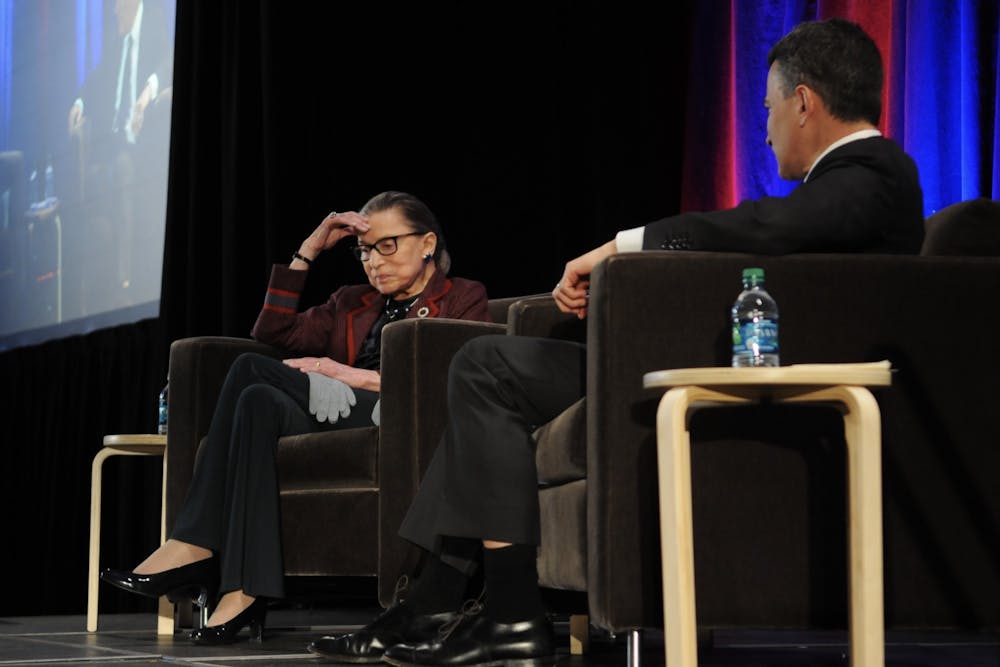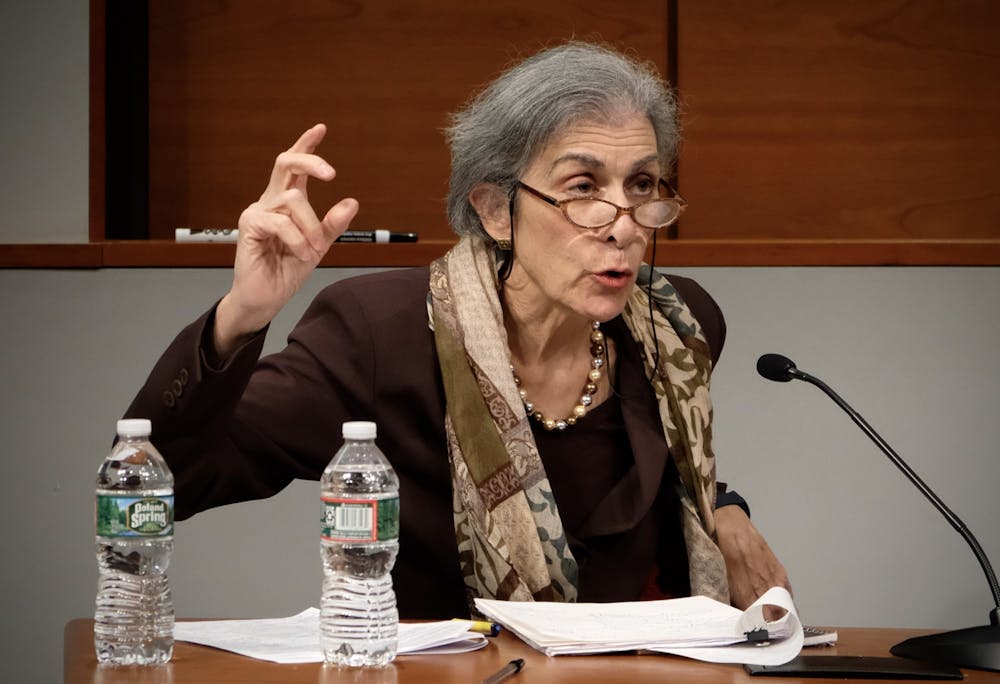
Penn Law deleted its public statement on the death of Ruth Bader Ginsburg after students lambasted it for including a quote from controversial law professor Amy Wax.
Ginsburg, the second woman to sit on the Supreme Court and an advocate for women's rights, died of pancreatic cancer on Sept. 18 at age 87. The statement, posted to the law school’s Facebook page on Sept. 23 at 8:51 a.m., quickly garnered recoil from Penn Law students and graduates for including an excerpt from Wax's book review — published in Claremont Review of Book's Winter 2020 edition — on Jane Sherron De Hart's "Ruth Bader Ginsburg: A Life." Penn Law students noticed the statement had been deleted around 4:40 p.m. later that day.

"Let us now praise Ruth Bader Ginsburg," Wax's quote read. "There is ample grist available for hagiography: in the year 2018 alone, a slew of glowing retrospectives celebrated Ginsburg’s status as a feminist heroine and champion of women’s rights. There was Ruth Bader Ginsburg, a biography by U.C. Santa Barbara history professor Jane Sherron De Hart. There was a Netflix documentary about Ginsburg’s career, simply entitled RBG. And the list goes on. But these accounts paid a price for their relentlessly laudatory tone. Missing was any serious appraisal of her professional legacy, its place within larger judicial and legislative debates, and its implications for the shifting and often conflicting roles of women in modern society."
While Wax applauds Ginsburg's professional legacy in the selected quote featured in Penn Law's statement, the book review itself casts Ginsburg's admirable work ethic as an outlier for women. Wax wrote in the book review "it is rare that women, regardless of their profession, ability, or training, are willing to work long hours routinely and consistently" as Ginsburg had done.
"Although perhaps she inspires a few women to greater heights, RBG and the worship that attends her may lead others to feel ashamed of the lives they have chosen or of what they really want from work, men, and family life," Wax wrote.
Penn Law Acting Director of Communications Rebecca Anderson and Wax did not respond to multiple requests for comment.
Second-year Penn law student Catherine Kearney said that she felt an “incredible betrayal” from the law school upon seeing Wax’s quote, describing the inclusion of Wax's quote as disrespectful to the late Ginsburg. She added that the public statement was a “call to action” for students to continue pushing administration to terminate Wax’s tenure.
“It felt like a betrayal of all the student work and activism to decrease [Wax’s] role in the law school,” Kearney said. “It was also just a reminder that without constant pressure from the student body, there will be no movement, so we just need to find a way in this virtual world to continue to pressure them.”
Days after students and alumni responded with outrage to a 2017 video of Wax saying she has never seen a Black Penn Law student graduate in the top quarter of their class, Ruger barred Wax from teaching mandatory first-year law courses in 2018. Wax retains her employment as a tenured professor despite student demands and protests that she be fired.

In July 2019, Wax argued for an immigration policy favoring immigrants from Western countries over non-Western countries at the Edmund Burke Foundation’s National Conservatism conference, saying that America would be “better off with more whites and fewer nonwhites.” Penn Law Dean Ted Ruger denounced Wax's statements as a "bigoted theory of white cultural and ethnic supremacy" at best and "racist" at worst.
First-year Penn Law student Paul Sindberg believes that the administration's decision to include Wax’s quote represents its failure to do enough to combat racism within the school, and legitimized Wax's racist and sexist beliefs.
“By continuing to publish things like this and by continuing to employ Amy Wax, I think the school is complicit and is, frankly, leading the continued entrenchment of white supremacy both in Philadelphia and nationally,” Sindberg said.
Second-year law student Lindsay Grier agreed, adding that administration should fire Wax and work towards creating a more inclusive classroom environment.
“I think that Penn Law is a place that could be a lot more inclusive to communities of color, to LGBTQ communities, and to communities that are not typically welcome in a legal environment,” Grier said. “For me, the most basic thing they could do is fire Amy Wax, and until that happens, their statements about trying to be an inclusive community will feel weightless.”
Grier added that she was not surprised that the law school decided to take down the statement following the immense backlash it had received.
"It makes me think that they care more about people’s perception about them than they do about the work that they’re doing to create an inclusive community," Grier said.
Second-year law student Becca Lynch said the law school should not have chosen to amplify Wax’s voice given her history of racist and sexist comments.
“We’re already in a sad and difficult moment for the legal profession and for the country, and the things that Ruth Bader Ginsburg valued are trying to create a more just society and less racist and less sexist environment for ourselves and the world,” Lynch said. “Amy Wax’s work overall is antithetical to those values.”
The Daily Pennsylvanian is an independent, student-run newspaper. Please consider making a donation to support the coverage that shapes the University. Your generosity ensures a future of strong journalism at Penn.
Donate







